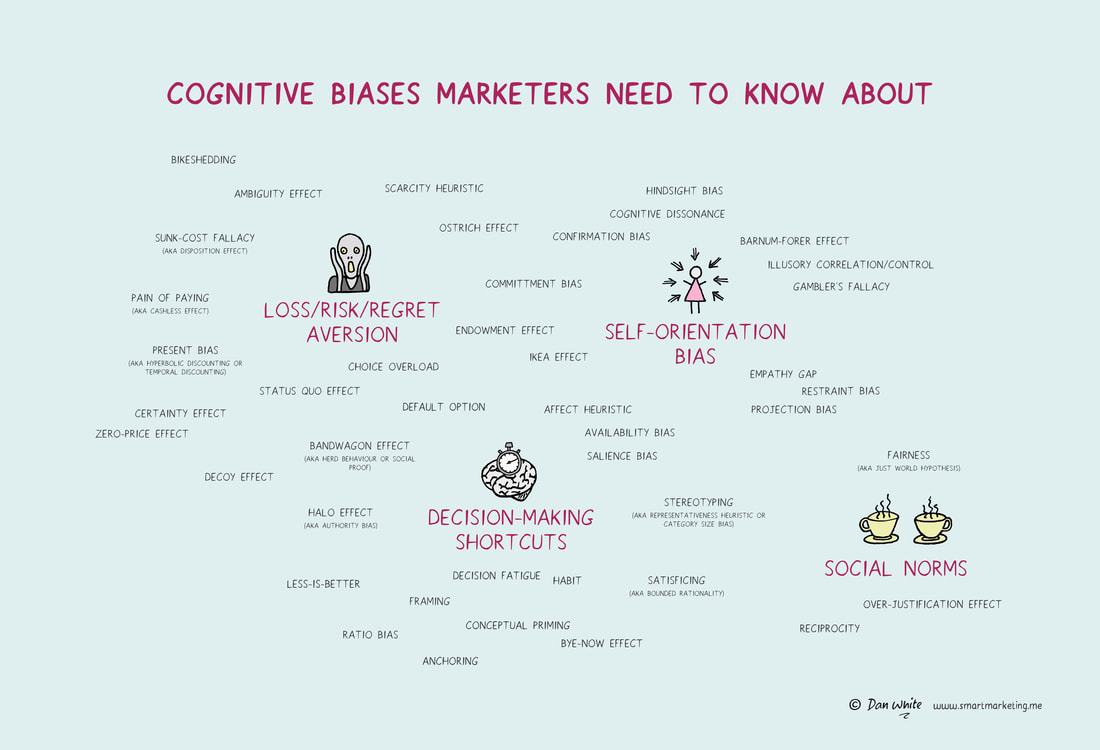|
Hundreds of cognitive biases have been discovered that explain why people often act irrationally, but there are just a few underlying themes that every marketer should be aware of...
People hate the prospect of losing something, missing out or making a bad choice. So, limited time offers, free trial periods, personalised recommendations and switching fee refunds are all effective. People believe they are at the centre of the universe, understand it better and have more control over it that they actually do which is why the odds of winning a competition hardly effect entries. It also means you can encourage re-purchase by reminding buyers they made the best choice. If people spent time thinking about every decision, they’d never finish breakfast before bedtime. Decision-making short-cuts ('heuristics') are used all the time - we reserve mental energy for big decisions. The most commonly used heuristics include: 'the one I thought of first’, 'the one that’s here right now’, 'the one that makes me feel good’, 'the best’, 'the cheapest’, 'the one that’s best at XXXX’, 'the one that’s better than these other options I see before me’, The most common heuristic is 'the one I bought last time’ - used if the decision is felt to be unimportant or the person is too busy to think about it. Social norms are also important for marketers to understand. Examples include the belief that the world is, or should be, 'fair' - if you give consumers something for free, they will want to return the favour in some way. See also: Examples of Behavioural Biases (1), Examples of Behavioural Biases (2) & Examples of Behavioural Biases (3). What to learn more? Try asking Virtual Dan White. |
- Home
- Books
-
Illustrations
- Marketing
- Brand Development
- Brand Experience
- Innovation
- Communications Strategy
- Media Characteristics
- Creative Content
- Pricing & Sales Promotion
- Measurement
- Data and Analysis
- Brand Review & Planning
- Brand Extension
- Mental Processes
- Business
- Business Story Telling
- Case Examples
- Wellbeing
- People Skills
- Life Hacks
- Articles
- Media
- Services
- Merchandise
- Contact

